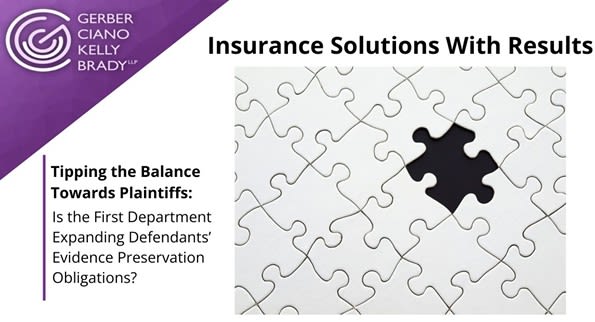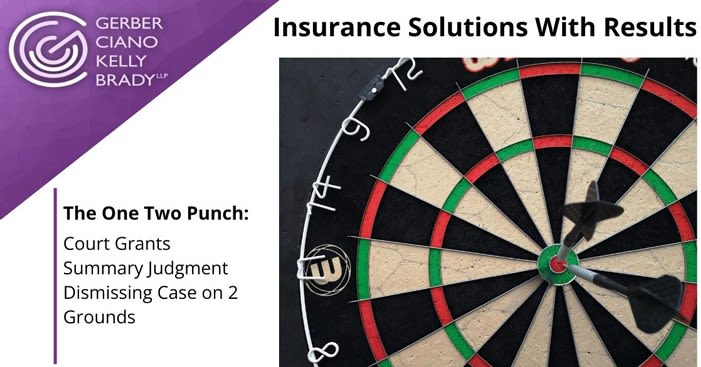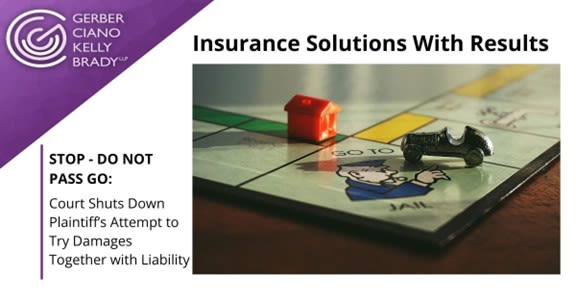Tipping the Balance Towards Plaintiffs: Is the First Department Expanding Defendant's Evidence Preservation Obligations?
A spoliation finding can fundamentally alter the trajectory of a case. An adverse inference charge which invites the jury to assume that missing evidence would have been unfavorable can be outcome-determinative on both liability and damages.

Caveat Emptor: Appellate Division Deems Fake AI Cities Frivolous
The increasing use of artificial intelligence has brought both opportunity and risk to the legal profession.

Winning for Our Clients: GCKB Scores Two Appellate Wins
At Gerber Ciano Kelly Brady, we fight hard for our clients—and we do not stop at an adverse decision. When trial courts get it wrong, we take the fight to the Appellate Division and deliver results.

Batten Down the Hatches: A Tsunami is Coming for Third-Party Practice in New York
For decades, third-party practice in New York has existed in a state of uneasy equilibrium—tolerated, leveraged, and often times resented by nearly everyone involved.

What Jurors Are Thinking: Jury Trends You Must Know
One of the hardest parts of trial work has always been predicting what jurors will do once the courtroom door closes.

The One Two Punch: Court Grants Summary Judgment Dismissing Case on 2 Grounds
In a significant win for our client, the Supreme Court, Queens County granted summary judgment in a slip-and-fall action involving a serious ankle fracture.

STOP-DO NOT PASS GO: Court Shuts Down Plaintiff's Attempt to Try Damages Together with Liability
When it is time for trial, plaintiffs always look for an advantage. This can mean when a case is weak on liability or when liability will be difficult to prove, letting a jury know about the severity of plaintiff’s injuries

JUST SIGNED: Governor Expands Use of Affirmations in Civil Cases
Governor Hochul has signed S.8195, which many practitioners will recognize as the expansion of use of Affirmations in lieu of Affidavits in all civil matters. This does not solely impact summary-judgment motions.

Chipping Away at Fraud Article
This battle has been going on for several years and continues. We previously told you about a recent First Department case “Is the Tide Turning” where the Appellate Division allowed a plaintiff to be questioned at his deposition about RICO suits.

Aggressive Defense Provides a Win
Knowing and applying key jurisdictional issues can mean the difference between an early dismissal of a case against a client or having to defend a case for years and incur mounting legal fees.
